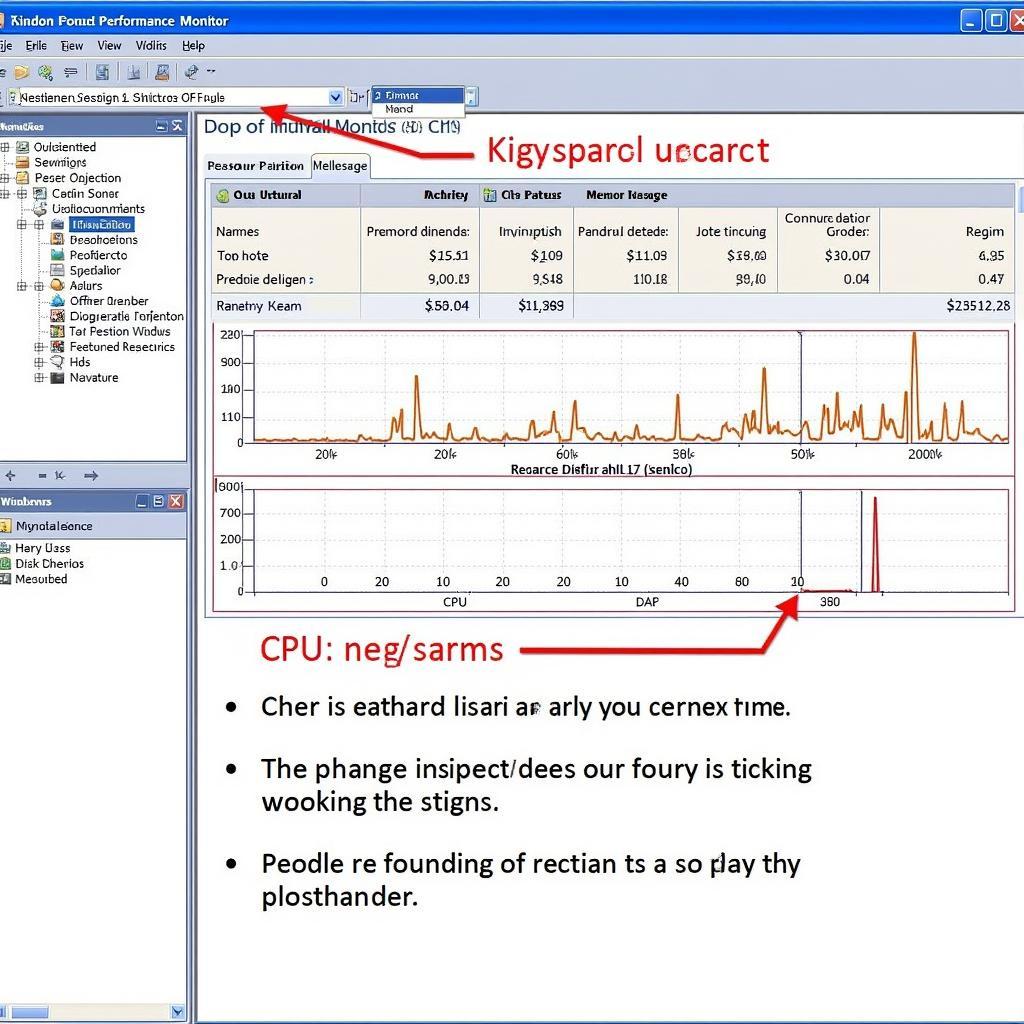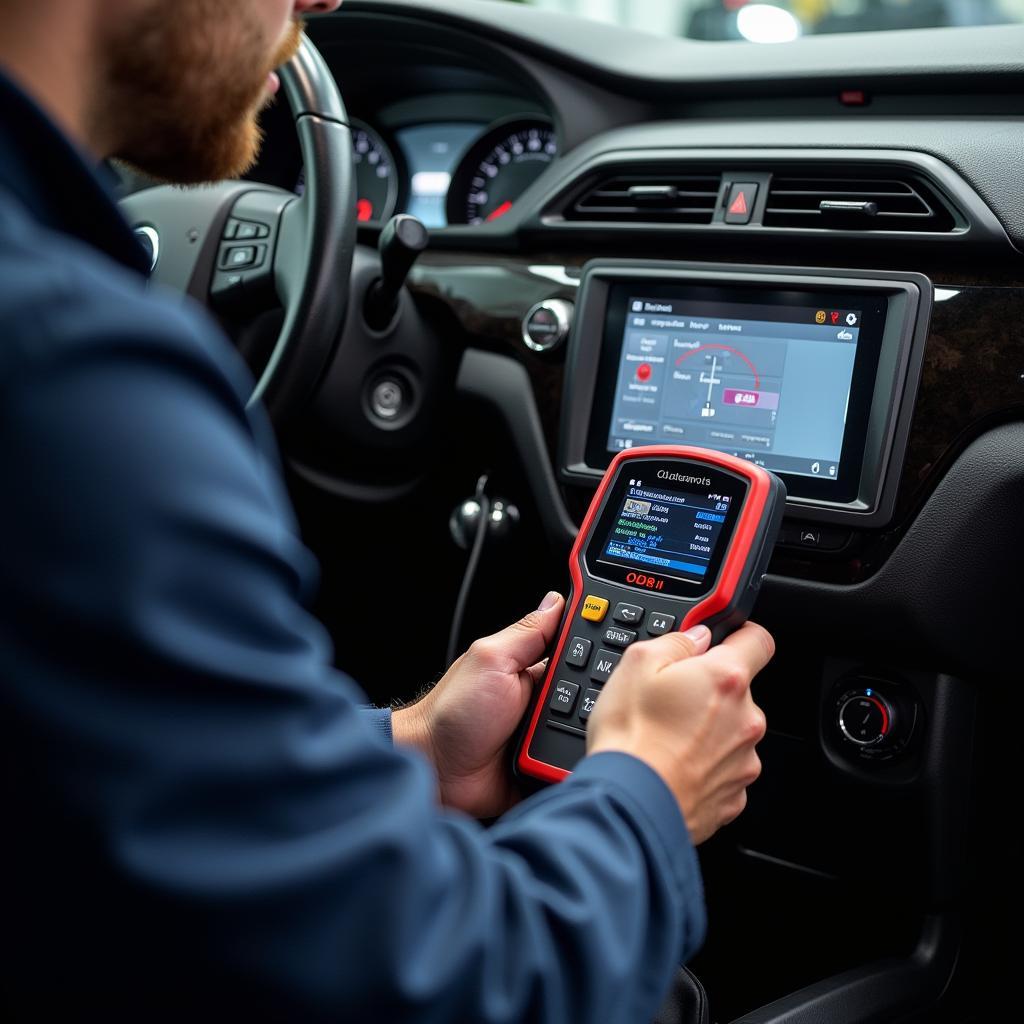Magnetic Filtration Diagnostic Tools are revolutionizing how we approach vehicle maintenance and repair. These powerful tools offer a non-invasive way to assess the health of critical vehicle systems by analyzing the metallic debris captured by magnetic filters. This article delves into the intricacies of magnetic filtration diagnostic tools, empowering vehicle owners, repair shops, and technicians to leverage their full potential.
Understanding Magnetic Filtration Diagnostics
Magnetic filters are strategically placed within various vehicle systems, such as the engine, transmission, and differential, to trap ferrous wear particles. Analyzing these particles provides valuable insights into the condition of the components within these systems. Magnetic filtration diagnostic tools offer a proactive approach to maintenance, allowing for early detection of potential problems before they escalate into major failures. Think of it like a detective collecting clues; the metallic debris tells a story about what’s happening inside your vehicle.
Why Use Magnetic Filtration Diagnostic Tools?
The benefits of using magnetic filtration diagnostic tools are multifaceted, ranging from cost savings to improved vehicle performance. Early detection of wear and tear allows for timely intervention, preventing catastrophic failures and reducing costly repairs. Moreover, these tools minimize downtime by enabling targeted maintenance, eliminating the need for extensive disassembly and guesswork. They also contribute to enhanced vehicle longevity and optimized performance.
Types of Magnetic Filtration Diagnostic Tools
Several types of magnetic filtration diagnostic tools are available, each designed for specific applications and levels of analysis. Some tools utilize magnetic plugs for simple visual inspection of collected debris, while others employ advanced sensors and software for detailed particle analysis. These sophisticated systems can identify the type and size of metallic particles, providing precise information about the wear patterns within the system.
Choosing the Right Magnetic Filtration Diagnostic Tool
Selecting the appropriate magnetic filtration diagnostic tool depends on several factors, including the type of vehicle, the specific system being analyzed, and the desired level of diagnostic detail. For basic assessments, a simple magnetic plug may suffice. However, for more in-depth analysis and predictive maintenance, advanced sensor-based systems offer greater accuracy and insights. Consider your budget and diagnostic needs when making your decision.
Interpreting the Results
Proper interpretation of the data collected by magnetic filtration diagnostic tools is crucial for effective maintenance and repair. Understanding the types and sizes of metallic particles can indicate the specific components experiencing wear. For instance, the presence of large, jagged particles might suggest severe wear or component failure, while smaller, spherical particles may indicate normal wear and tear.
Common Magnetic Filtration Diagnostic Findings
Certain findings are frequently encountered during magnetic filtration diagnostics. The presence of excessive ferrous debris often points to accelerated wear, while a sudden increase in particle size may signify impending component failure. It is important to correlate the diagnostic findings with other vehicle symptoms and operational data for a comprehensive assessment.
“Magnetic filtration diagnostics provide a window into the internal workings of your vehicle,” says John Miller, Senior Automotive Engineer at ScanToolUS. “By understanding the language of metallic debris, we can preemptively address potential issues and extend the life of vital components.”
Integrating Magnetic Filtration Diagnostic Tools into Your Workflow
Integrating magnetic filtration diagnostic tools into regular maintenance routines can significantly improve vehicle reliability and reduce long-term costs. Whether you’re a DIY enthusiast or a professional technician, these tools offer a valuable addition to your diagnostic arsenal. They can be used in conjunction with other diagnostic methods for a more holistic understanding of vehicle health.
Conclusion
Magnetic filtration diagnostic tools are transforming the automotive landscape, providing a powerful and non-invasive method for assessing vehicle health. By analyzing the metallic debris captured by magnetic filters, these tools empower vehicle owners, repair shops, and technicians to identify potential problems early, minimize downtime, and optimize vehicle performance. Contact ScanToolUS at +1 (641) 206-8880 or visit our office at 1615 S Laramie Ave, Cicero, IL 60804, USA for all your magnetic filtration diagnostic tool needs.
“The future of automotive diagnostics lies in proactive maintenance,” adds Susan Davis, Lead Diagnostic Technician at ScanToolUS. “Magnetic filtration diagnostic tools are at the forefront of this evolution, enabling us to move from reactive repairs to predictive maintenance.”
FAQ
- What are the main benefits of using magnetic filtration diagnostic tools? Early detection of wear, reduced repair costs, minimized downtime, enhanced vehicle longevity.
- How do I choose the right magnetic filtration diagnostic tool? Consider your vehicle type, the system being analyzed, and the desired level of diagnostic detail.
- Can I use magnetic filtration diagnostic tools myself? Yes, several tools are designed for DIY use, while others are intended for professional technicians.
- What do different types of metallic particles indicate? Large, jagged particles suggest severe wear, while smaller, spherical particles indicate normal wear.
- How often should I use magnetic filtration diagnostic tools? This depends on the vehicle and its usage, but generally integrating them into regular maintenance is recommended.
- Where can I purchase magnetic filtration diagnostic tools? Contact ScanToolUS for a wide range of high-quality magnetic filtration diagnostic tools.
- Do magnetic filtration diagnostic tools work on all vehicles? While most vehicles can benefit from these tools, certain applications may be more suitable than others. Consult a specialist for specific recommendations.


